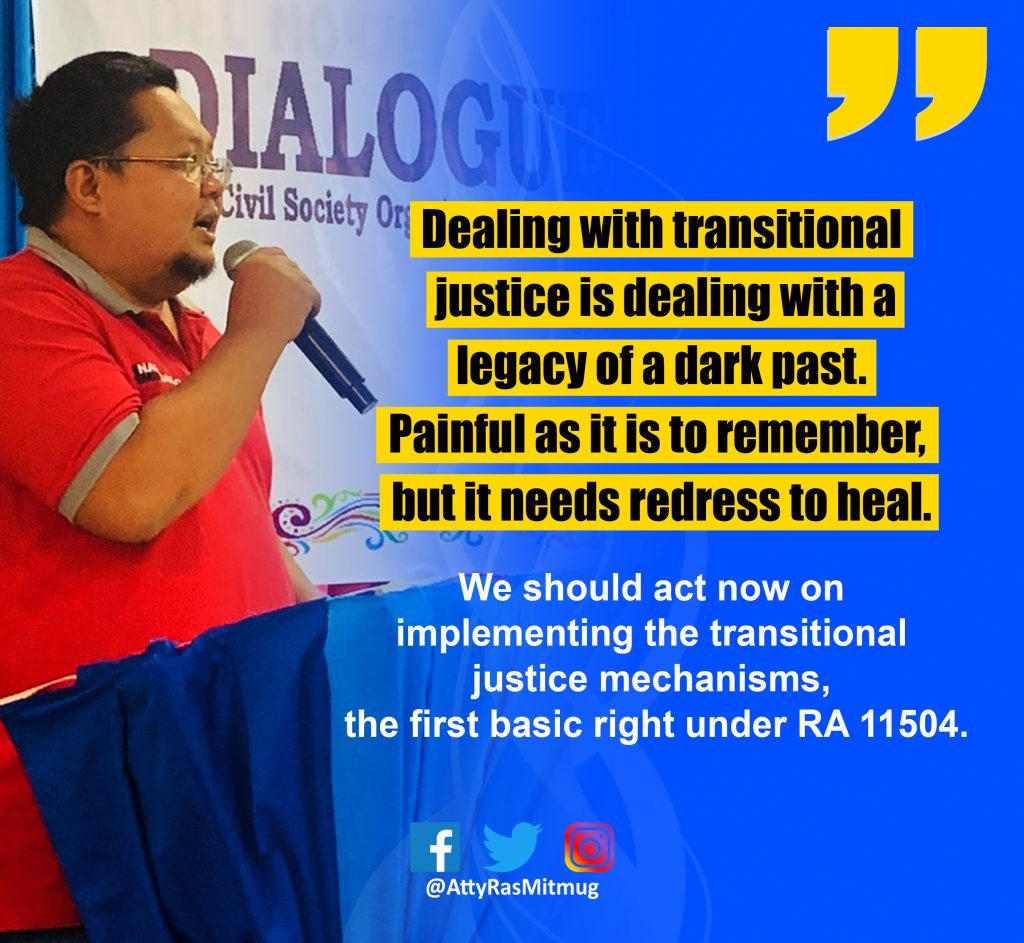
Today, we commemorate the 52nd anniversary of the Jabidah Massacre. We may not know all their names, but they deserve to be honored and remembered.
Over the past decades, we rallied fervently to have the injustices committed against our people be acknowledged, we fought hard to achieve a greater autonomy, to be given a chance at peace, and to aspire for our inherent self-determination—for this Bangsamoro Government.
As one of the many transgressions committed against the Bangsamoro, the Jabidah Massacre remains to be one of the large-scale human rights abuses that afflicted our people which subsequently led the Bangsamoro cause.
As members of the interim parliament, as one Bangsamoro, it is imperative that we take every step to ensure that NEVER AGAIN we have to see its likes again and bring these stories into the forefront of public consciousness. One of the measures that we have taken is the passage of a resolution on Jabidah Massacre last February 19, 2020, entitled, Resolution Requiring All Ministries and Offices Including Schools to Initiate and Develop Comprehensive Policies, Programs and Activities in Commemoration of the Anniversary of Jabidah Massacre as a Transitional Justice Mechanism.
It is only befitting to let the children of today be fully aware of the things that happened leading to the establishment of the Bangsamoro government. They will not understand and fully grasp the story behind the Bangsamoro Struggle unless we tell them the story ourselves. In this age of spin and misinformation, we must rise above the lies and propaganda to make sure our history will not be erased or twisted, and our people be misled. The grievances of our people are beyond the political dichotomy that divides this country.
We do not succumb to history revisionism, today and in the future.
They say, “those who do not remember the past are condemned to repeat it.” Dealing with transitional justice is dealing with a legacy of a dark past. Painful as it is to remember, but it needs redress to heal.
We should act on implementing the transitional justice mechanisms, the first basic right under RA 11504.
Section 1, Article 9 of the Bangsamoro Organic Law, provides that the Bangsamoro Parliament shall enact a transitional justice mechanism to address the legitimate grievances of the Bangsamoro people and the indigenous peoples, such as historical injustices, human rights violations, and marginalization.
As a framework for sustainable peace and conflict transformation, transitional justice is anchored on four mechanisms that primarily addresses the needs of victims: citizens’ right to know, right to justice, right to reparation and right to be given assurance that atrocities in the past will not recur anymore (guarantee of nonrecurrence).
Contrary to what others might think, the process of nation building does not abandon the horrors of the past, instead it recognizes its own place in the Bangsamoro narrative. This is not only a mere commitment of the Bangsamoro Government but a mandate as well, to achieve a justice framework actively addressing the legitimate grievances of the people.
We recognize the changes that need to be done, we work on to develop systems and policies to uplift and improve the state of our bangsa, and transitional justice framework is one step in creating conditions for a durable and lasting peace in the Bangsamoro. We have risen above the brutal and pointless violence already. Now we work to rehabilitate and rebuild our nation. Easy said than done, but we can never move forward if we do not take the first step.
And whilst doing so, we must remember. Never forget. Never again.
*This article was originally published in MP Mitmug’s Official Facebook Page on March 18, 2020.

